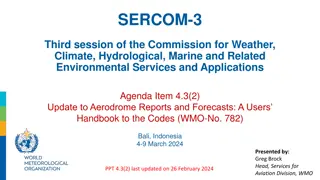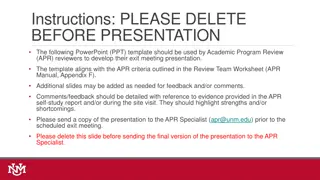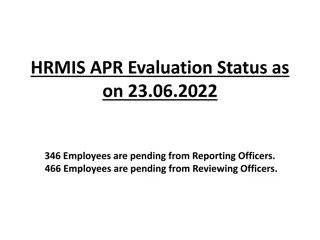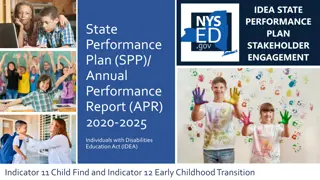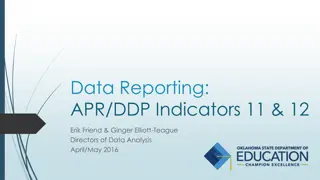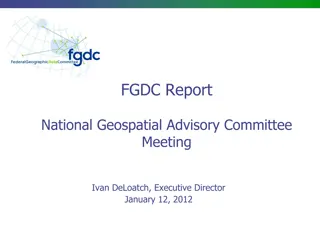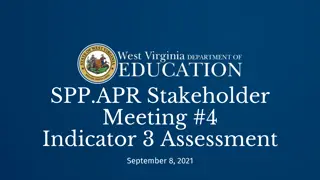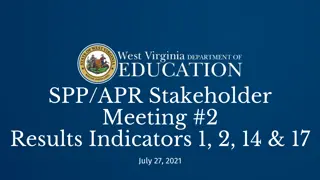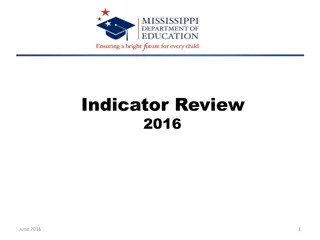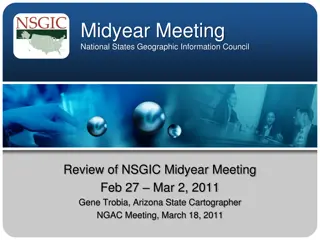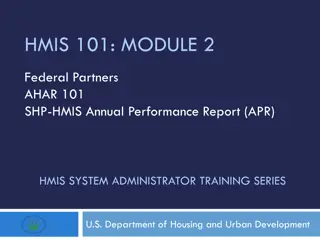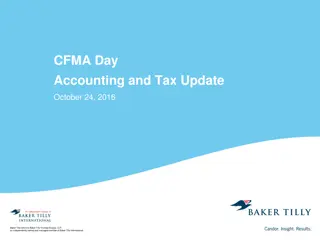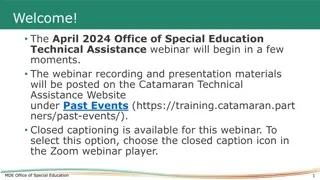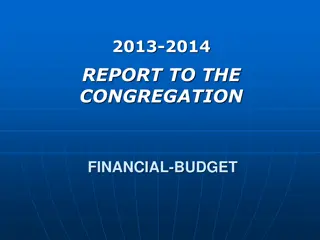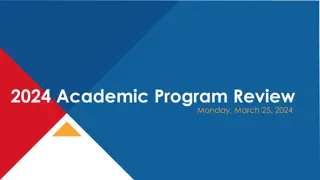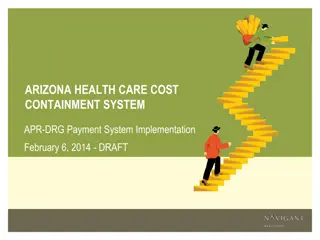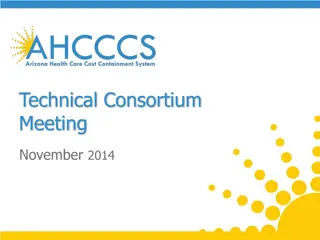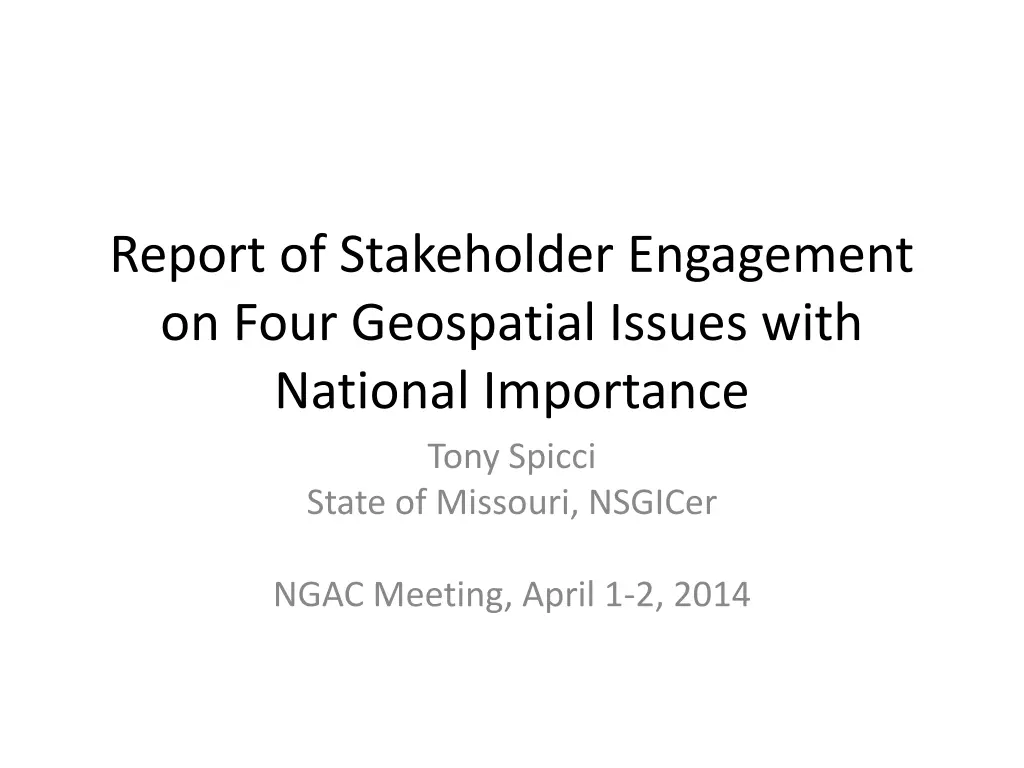
Stakeholder Engagement Report on Geospatial Issues of National Importance
Explore insights from stakeholder engagement on four key geospatial issues with national significance, covering topics such as National Spatial Data Infrastructure, National Address Point Database, Transportation for the Nation, and Geospatial Response for Emergency Management. The report delves into challenges, recommendations, and the role of different stakeholders in advancing geospatial initiatives at state and federal levels.
Download Presentation

Please find below an Image/Link to download the presentation.
The content on the website is provided AS IS for your information and personal use only. It may not be sold, licensed, or shared on other websites without obtaining consent from the author. If you encounter any issues during the download, it is possible that the publisher has removed the file from their server.
You are allowed to download the files provided on this website for personal or commercial use, subject to the condition that they are used lawfully. All files are the property of their respective owners.
The content on the website is provided AS IS for your information and personal use only. It may not be sold, licensed, or shared on other websites without obtaining consent from the author.
E N D
Presentation Transcript
Report of Stakeholder Engagement on Four Geospatial Issues with National Importance Tony Spicci State of Missouri, NSGICer NGAC Meeting, April 1-2, 2014
Geospatial Issues National Spatial Data Infrastructure National Address Point Database (NAPD) Transportation for the Nation (TFTN) Geospatial Response for Emergency Management
National Spatial Data Infrastructure Some agencies with A-16 theme lead assignments are ignoring their responsibilities and are not coordinating with state and local government. Agencies with mission specific needs for data are more likely to obtain appropriations and contract for data than agencies trying to develop cross-cutting framework data that would be share be multiple agencies.
NSDI Recommendations Business plans with stakeholder input. Systems and programs with state, local, federal participation. Congress should establish an oversight Committee for Federal geospatial activities. Build an agency agnostic network. Recognize and affirm the role of the private sector. Realize the financial investment of these programs.
National Address Point Database (NAPD) Nearly every aspect of government operations has a requirement for authoritative and consistent address data; however, at this time Next Generation 9-1-1 is a compelling business driver and enabler for developing the NAPD.
NAPD Recommendations Identify several economic incentives with high impact. Develop abbreviated data standard for core elements . Agree to a data model and exchange standard. Develop a simple data workflow process model.
NAPD Recommendations (cont.) Recognize the role of states as aggregators. Recognize efforts underway and not duplicate efforts. Build an ROI document. FGDC should recognize addresses as a theme in OMB A-16 and designate a data steward.
Transportation for the Nation (TFTN) Next Generation 9-1-1, highway safety, tracking infrastructure assets, and the distribution of federal transportation funds are significant functions and business drivers that should motivate all levels of government to develop Transportation for the Nation.
TFTN Recommendations Develop information on the value of ARNOLD Identify innovative ways to partner with commercial and crowd data. Develop future standards, data models and data exchange standards with stakeholder input Find existing best practices. Understand all business requirements.
Geospatial Response for Emergency Management We must find ways to make the work of coordinating less than the cost of duplicating efforts.
Geospatial Response for Emergency Management Recommendations Understanding of business needs of all partners. Improve data access; reduce duplication. Improved communication tools and procedures. GIS as an ESF in the NICS
Document www.nsgic.org/publications-by-nsgic Or I can email the document

